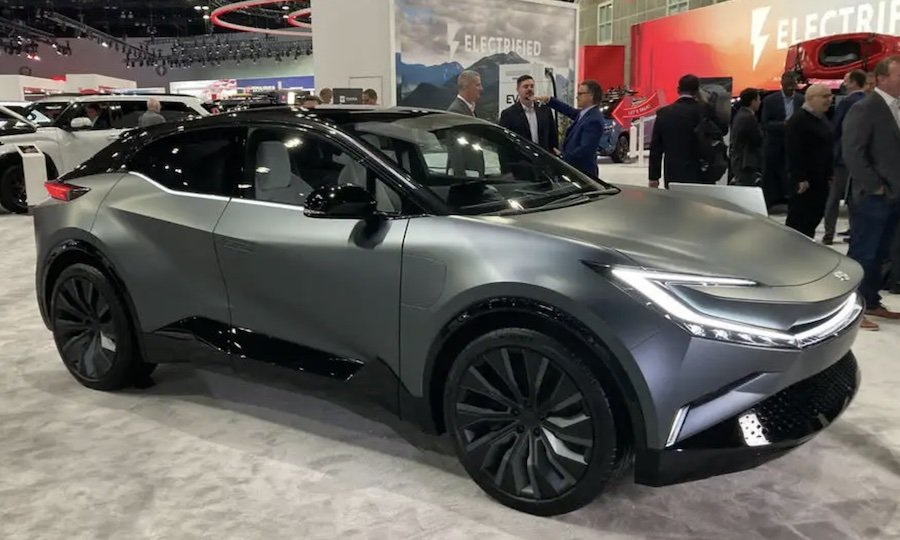New Toyota electric crossover is one of five EVs by 2026

The production version of Toyota’s new bZ Compact Crossover concept will be its second bespoke electric car, and one of five due to launch between now and 2026.
Expected on sale by the end of 2023, and possibly called the bZ3X, the sleek new crossover is sized to take on the Volvo C40 Recharge and Smart #1 - and represents a marked departure in Toyota’s approach to design and construction. It will sit between the radically redesigned second-generation Toyota C-HR and the slightly larger Toyota bZ4X SUV.
Together with the new Lexus Electrified Sport concept, the crossover indicates “our clear commitment to battery-electric vehicles”, said European CEO Matt Harrison, though he also pointed out the enduring important of hybrid-electric vehicles to Toyota’s strategy: “we believe it’s too early, and perhaps too risky for the environment and for our customers to put all our ZEV eggs in the BEV basket”.
The introduction of six bZ-badged electric cars by 2026 form’s part of Toyota’s plan to achieve full carbon neutrality in Europe by 2040 - ten years before the firm will achieve the same goal on a global level.
The concept is an evolution of one shown as part of a group of 15 future EVs by Toyota CEO Akio Toyoda last year – is said to give “a glimpse of what the future could hold as Toyota extends the electrification vision of its bZ ‘Beyond Zero’ sub-brand”.
However, it is quite a radical design departure from the bZ4X, most notably in its overt focus on aerodynamic efficiency.
Toyota highlights that "the car’s aerodynamic form enhances its futuristic look, with the wheels pushed out to the corners to create a powerful stance.
"Short overhangs and swept-back angles express its advanced technology content, while a narrowed-down cabin gives an agile, low-drag look."
Toyota has not confirmed the concept's drag co-efficient, but its sloping roofline, low front end and purposeful rear spoiler will no doubt help it improve upon the bZ4X's 0.29Cd - which gives it potential also to boost maximum range above 320 miles, if it uses the same powertrains.
The bZ4X is offered with a choice of four- and front-wheel-drive powertrains, the latter extracting most range from the 71.4kWh standard-fit battery pack. Toyota has not hinted at the technical make-up of the new concept, but it will use the same e-TNGA platform as the bZ4X, so the same batteries and motors would be an obvious fit.
The interior of the show car is more conceptual than the exterior, with radical curved screens for the infotainment and driver displays, an angular floating centre console and a complete lack of physical switchgear.
The radical yoke-style steering wheel is an obvious concept car element, but does hint at plans for the production version to be offered with the same electronic steer-by-wire technology as existing e-TNGA-based cars, including the bZ4X and Lexus RZ450e.
The materials used throughout have been chosen in line with a focus on boosting premium credentials and promoting sustainability. The seats are made of plant-based and recycled materials, Toyota says, embodying its ambition to achieve overall carbon neutrality by 2050.
There is also an 'in-car personal assistant', which communicates with vehicle occupants using "audio and lighting cues that move around the cabin" and responds to various requests and commands.
